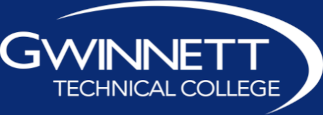| What is Early Childhood Care and Education? |
The Early Childhood Care and Education degree is a sequence of courses designed to prepare students for careers in early childhood care and education and related fields. Learning opportunities develop academic, technical, and professional knowledge and skills required for job acquisition, retention, and advancement. The program emphasizes a combination of early childhood care and education theory and practical application necessary for successful employment. Program graduates receive an Early Childhood Care and Education associate of applied science degree with one of the following concentrations: 1) Early Childhood Care and Education Paraprofessional 2) Early Childhood Program Administration 3) Exceptionalities 4) Infant/Toddler Care. Career opportunities include paraprofessional in an elementary school or special education classroom, lead teacher or assistant teacher in an early learning center and/or head start classroom, or early learning center director or assistant director. |
| Degrees and Certificates |
- Early Childhood Care and Education, AAS
- Early Childhood Care and Education, diploma
- Child Development Specialist certificate
- Early Childhood Care and Education Basics certificate
- Early Childhood Exceptionalities certificate
- Early Childhood Program Administration certificate
- Infant/Toddler Care certificate
|
| Prerequisites |
- FYES 1000
- Degree level proficiency is required to take degree level General Education courses.
- Diploma level proficiency in English, reading and math are required to take ECCE technical courses. Please refer to course descriptions in the online catalog for specific prerequisites.
|
| Semester Program Begins |
Fall, spring, or summer |
| Application Process |
Applicants to the Early Childhood Care and Education program must meet all Admission requirements; complete an application and pay the application fee. Individuals apply to Gwinnett Technical College at GwinnettTech.edu, submit all transcripts from high school and previous college work, and take the ACCUPLACER test, if required. |
| Field Experiences
|
The practicum and internship field experiences allow students to work with children and families throughout the semester. The practicum experience consists of 75 hours of classroom experience. The internship experience consists of two 6-credit hour courses and the courses may be taken concurrently, or over two semesters. Internship is only offered in spring and fall semesters. Students who currently work in an early childhood program or an elementary school may be able to complete their required field experience hours at their job site upon the program director’s approval.
|
| Practicum and Internship Requirements |
All Early Childhood Care and Education students are required to submit a completed state and federal criminal records background check prior to enrolling in ECCE 1121 , ECCE 2245 and ECCE 2246 . To be employed in child care centers, public schools, or Head Start centers, an individual must have a satisfactory criminal records check. Persons who have been convicted of a felony offense are not employable in the child care field. |
| Program Deadlines |
You may enter in the fall, spring, or summer semester. |
| For more information, contact: |
Christy Mitchell, program director, CMitchell@GwinnettTech.edu, 678.226.6940. |
| For admission and enrollment, contact: |
Enrollment Support Center in Building 100 at the Lawrenceville campus, or Building A at the Alpharetta-North Fulton campus, or email PPS-Team@gwinnetttech.edu |
Quick Facts
(This data was compiled from the U.S. Bureau of Labor Statistics.)
| 2016 Median Pay |
$28,790 per year |
| Entry level education |
Associate degree |
| Number of jobs, 2014 - 2024 |
478,500 |
Nature of the Work: Paraprofessionals and preschool teachers provide learning experiences for young children in all domains of learning. This includes cognitive, physical, social and emotional.
Work Environment: Paraprofessional and preschool teachers typically work in public and private schools or early learning environments.
Bureau of Labor Statistics, U.S. Department of Labor, Occupational Outlook Handbook, 2016-17 Edition.
https://bls.gov.ooh/education-training-and-libary/preschool-teachers.htm.
Gwinnett Technical College does not discriminate on the basis of race, color, national origin, sex, age, or disability. Lisa Richardson, Title IX, and Section 504 Coordinator, 5150 Sugarloaf Parkway, Building 100, Room 407, Lawrenceville, GA 30043, 678-226-6691, LRichardson@GwinnettTech.edu.
|
